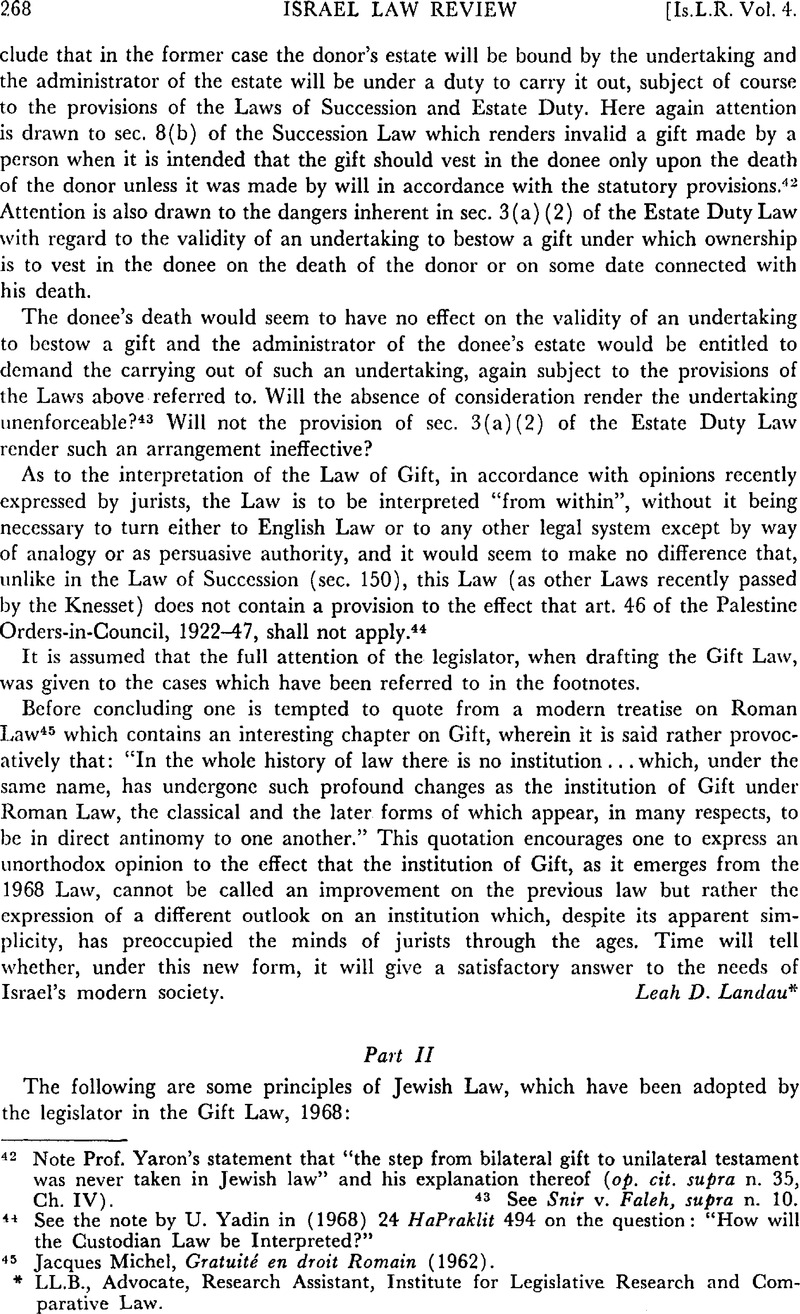No CrossRef data available.
Published online by Cambridge University Press: 12 February 2016

1 Hatza'ot Hok, No. 669 (5725) p. 368.
2 See the observations of the Chairman of the Law and Constitution Committee of the Knesset when introducing the bill for its second and third readings: Divrei HaKnesset of 19.2.68.
3 Compare Gulak, Asher: Elements of Jewish Law (in Hebrew) Part II, 159.Google Scholar
4 Maimonides, : The Book of Acquisition and Gifts, III, 2 (Translation by Klein, Isaac, Yale University Press, 1951).Google Scholar
5 Maimonides, ibid. IV, 1. And see Shulhan Aruch Hoshen Mishpat, CCXLI, 5.
6 Mishnah, Eruvin VII, 11.
7 See Rashi, Ketubot, 1 la, v., mahu deteyma.
8 Mishnah, Eruvin, ibid.
9 Maimonides, op. cit. IV, 2.
10 See first part of present article, note 15.
11 See Divrei HaKnesset, ibid.
12 Maimonides, op. cit. III, 1, and see Shulhan Aruch Hoshen Mishpat, CCXLI, 1.
13 Divrei HaKnesset, ibid.
14 Ibid.
15 Op. cit. IV, 2.
16 Ibid. VI, 1, and see Shulhan Aruch Hoshen Mishpat, CCXLVI, 1.
17 See Responsa of the Maharam of Lublin (sec. 98) who lays down that the doctrine of the donor's intentions holds good even where a son is born to the donee after the bestowal of the gift. Compare art. 960 of the French Code Civil which provides that where the donor was childless and later begets a legitimate child, the gift is revoked by law (becomes void) and apart from the question of income, the revocation works retroactively. As for the income of a gift which has been revoked, compare Maimonides, op. cit. VI, 13: “In the case of all those who have given all their property as a gift, when such a gift becomes void and has to be returned to the original wner, the donee is not obligated to make restitution for the usufruct he enjoyed…”
18 See first part of the present note.